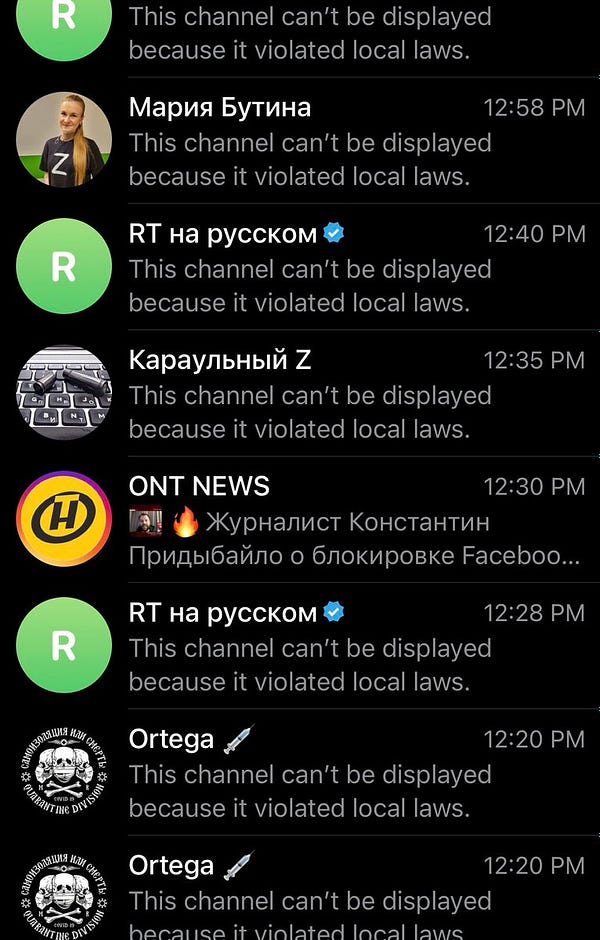The Sydney Dialogue -The crisis of automation in the Indo-Pacific | Russian banks rush to switch to Chinese card system | TikTok suspends livestreaming and new uploads from Russia
Follow us on Twitter. The Daily Cyber Digest focuses on the topics we work on, including cyber, critical technologies & strategic issues like foreign interference.
In this Sydney Dialogue panel discussion, speakers will discuss where the effects of automation pose the greatest challenges for the region and how we can ensure career pathways for those displaced to mitigate the risk of civil unrest and ensure that critical skills gaps do not open up and restrict growth in the long term. Watch the panel discussion today at 1730 AEDT. The Sydney Dialogue
Several Russian banks said on Sunday they would soon start issuing cards using the Chinese UnionPay card operator's system coupled with Russia's own Mir network, after Visa and MasterCard said they were suspending operations in Russia. Reuters
TikTok, which is owned by the Chinese company ByteDance, said it was taking the actions as it reviews Russia’s new law on “fake news.” The law appears to target media outlets that don’t hew to the Kremlin’s line on the invasion of Ukraine. The New York Times
ASPI ICPC
The Sydney Dialogue: Who Works? The Crisis of Automation in the Indo-Pacific
The Sydney Dialogue
The world is undergoing the largest workforce transition since the industrial revolution, and the Indo-Pacific is at the epicentre of this shift. Post pandemic, public and private sector enterprises of all sizes are capitalising on improvements in productivity, efficiency, and profitability by accelerating the rate at which they are applying technology to automate and augment work with more machines doing the work once done by people. In this panel discussion, speakers will discuss where the effects of automation pose the greatest challenges for the region and how we can ensure career pathways for those displaced to mitigate the risk of civil unrest and ensure that critical skills gaps do not open up and restrict growth in the long term. Watch the panel discussion today at 1730 AEDT.




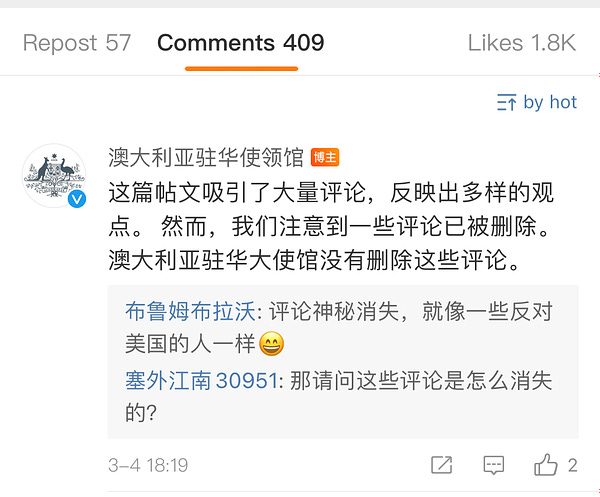
Russia-Ukraine
Russian banks rush to switch to Chinese card system
Reuters
Elaine Hardcastle
Several Russian banks said on Sunday they would soon start issuing cards using the Chinese UnionPay card operator's system coupled with Russia's own Mir network, after Visa and MasterCard said they were suspending operations in Russia.
TikTok suspends livestreaming and new uploads from Russia
The New York Times
Sheera Frenkel
TikTok, which is owned by the Chinese company ByteDance, said it was taking the actions as it reviews Russia’s new law on “fake news.” The law appears to target media outlets that don’t hew to the Kremlin’s line on the invasion of Ukraine.
TikTok has long tried to stay out of politics. Russia's invasion is making that harder
The Washington Post
Gerrit De Vynck, Cat Zakrzewski and Elizabeth Dwoskin
TikTok’s response has diverged from its counterparts in key ways. Other companies have used labels for years to identify state-controlled media accounts. But TikTok just announced Thursday that it is “working to roll out a pilot” of its policy and to provide labels on some accounts.
TikTok Is Gripped by the Violence and Misinformation of Ukraine War
The New York Times
Sheera Frenkel
The Chinese-owned video app is dealing with a flood of war videos and the question of whether it is spreading unverified information.
Why global supply chains will be re-written by the 'second Cold War'
ABC News
Gareth Hutchens
"If the Russia-Ukraine conflict's international ramifications keep spreading, we face a real possibility of a bifurcating global economy, in which geopolitical alliances, energy and food flows, currency systems, and trade lanes could split."
Volunteer hackers converge on Ukraine conflict with no one in charge
The New York Times
Kate Conger and Adam Satariano
The war in Ukraine has provoked an onslaught of cyberattacks by apparent volunteers unlike any that security researchers have seen in previous conflicts, creating widespread disruption, confusion and chaos that researchers fear could provoke more serious attacks by nation-state hackers, escalate the war on the ground or harm civilians.
The west’s hybrid war on Russia
The Financial Times
Robin Wigglesworth, Colby Smith and Claire Jones
Instead it is the west that is introducing a new and non-traditional means of fighting back, having been outsmarted for much of the past decade by Russia’s expansion of the battlefield to incorporate cyber attacks, misinformation and “little green men” — masked troops with no insignia.
Fact checkers have been busy debunking Russian misinformation related to Ukraine, but that's not the only place it has come from
ABC News
The Russian invasion of Ukraine and its wider implications are dominating news headlines, television bulletins and social media feeds as a global audience watches the rapidly evolving situation in real time. But while social media and instant messaging apps have allowed for the quick dissemination of vital information, both misinformation (incorrect or misleading information shared without malicious intent) and disinformation (bad information designed to deliberately mislead) are muddying the waters.
People around the world are booking Airbnbs in Ukraine. They don't plan to check in
CNN
Faith Karimi and Samantha Kelly
Airbnb hosts in Ukraine are being flooded with bookings from people all over the world who have no plans to visit. It's part of a creative social media campaign to funnel money to besieged Ukrainians who need financial assistance as Russian forces bombard their country and cut off services. The idea has picked up momentum. On March 2 and March 3, guests from around the world booked more than 61,000 nights in Ukraine, according to an Airbnb spokesperson. More than half of those nights were booked by Americans, the spokesperson said.




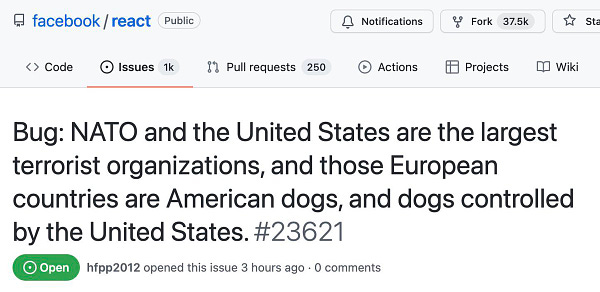
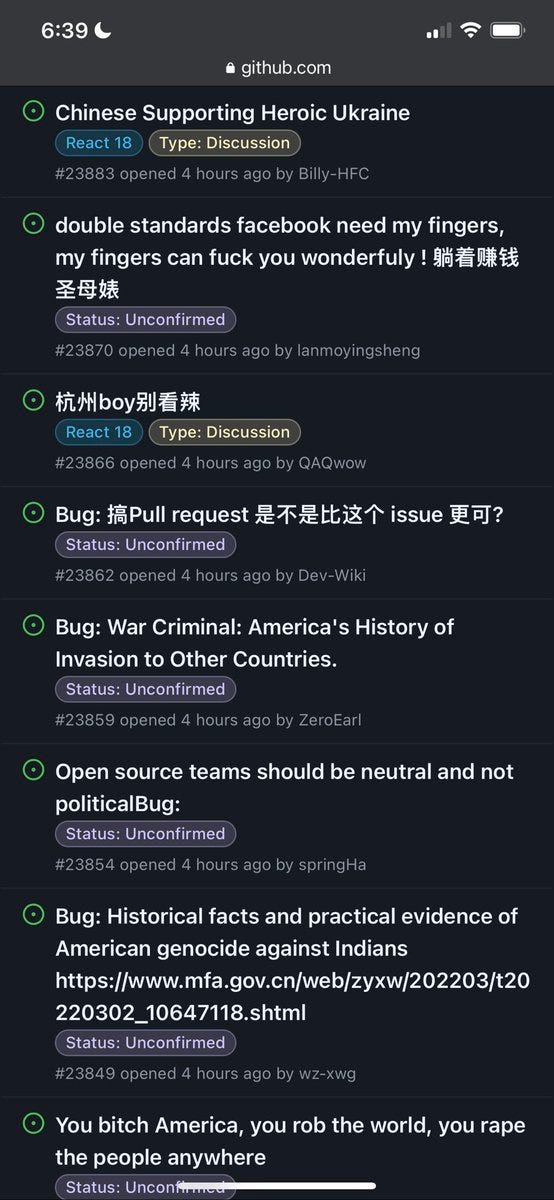
Australia
Australia challenged Big Tech to remove Russian state media. It deserves an answer
Nick Bonyhady
Nick Bonyhady
Communications Minister Paul Fletcher has a reputation in Canberra as a serious, careful operator with deep policy knowledge despite his youthful background in comedy. But last week, he made a dramatic move, with a directive aimed at technology giants YouTube, Google, Facebook, Instagram, TikTok, Snapchat, Apple and Microsoft, to pull down Russian state media content...If the technology firms adhere to Fletcher’s demand (which only Apple, Microsoft and Snap really have as part of earlier global strategies) RT and Sputnik would still be easily accessible via a web browser. Compare that to Russia, which has effectively criminalised honest reporting and commentary on the war. Simply calling the conflict a war is now potentially punishable by up to 15 years in jail under laws introduced last week. Facebook has been blocked and Twitter severely restricted in the country.
Big Tech has a fight on its hands in Australian courts
The Sydney Morning Herald
Laurel Henning and James Panichi
In early February, Meta failed in its attempt to extricate itself from a lawsuit brought by Australia’s privacy watchdog over the Cambridge Analytica data breach, with a judge ruling that the platform did indeed “carry on” business in Australia, which is the definition that allows Australian privacy law to kick in. Also this month, the court rejected a move by Google to have an Australian competition lawsuit lodged by Epic Games, the company behind the hit video game Fortnite, moved to California. Last July, Epic won the right to have its parallel lawsuit against Apple heard in Australia. These four rulings suggest that the court’s position on Big Tech’s jurisdictional challenges is solidifying. Lawsuits raising questions under Australian laws — be they competition, consumer or privacy — won’t be decided in California, no matter how airtight the platforms’ terms of service.
Keeping Australia's space sector soaring
Department of Industry, Science, Energy and Resources
The Australian Government is cementing Australia as a leading space nation in the region, with a range of new investments and reforms. More than $65 million is being injected to fast track Australia’s access to space.
Technology could be breakthrough needed to accelerate gender diversity
Australian Financial Review
Sunita Gloster
A demand for tech industry talent offers plenty of upside for women and families in Australia’s digital future.
NSW engages AISA to build cyber industry partnership
InnovationAus
Brandon How
The New South Wales government has engaged the nation’s cybersecurity industry advocacy group – the Australian Information Security Association (AISA) – to build a new Industry Partnership Program through the state’s cyber hub. Initially running until the middle of next year, the program will facilitate collaboration between businesses, academia, and government. The program aims to enhance local cyber capability and create new commercial opportunities for NSW cyber businesses.
China

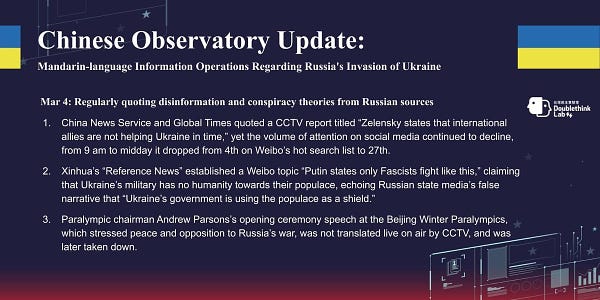
Was China duped on Ukraine?
Nikkei Asia
Bilahari Kausikan
Putin miscalculated and China blindly followed Russia into a strategic dead-end with no easy exit. Beijing and Moscow are stuck with each other because neither has any other partner of significant strategic weight. Growing Russian dependence on China may prove as much a liability as an asset for Beijing.
USA
Senate passes cybersecurity bill amid fears of Russian cyberattacks
The Hill
Ines Kagubare
The Senate unanimously passed cybersecurity legislation on Tuesday that would require companies in critical sectors to alert the government of potential hacks or ransomware. The Strengthening American Cybersecurity Act, a package of three bills sponsored by Sen. Gary Peters (D-Mich.), comes as U.S. officials urge the private sector to gear up for possible Russian cyberattacks in retaliation for U.S. sanctions over its invasion of Ukraine.
I've dealt with foreign cyberattacks. America isn't ready for what's coming.
The New York Times
Glenn S. Gerstell
Last week President Biden warned Mr. Putin against Russian cyberattacks on the United States’ critical infrastructure. But American businesses aren’t ready for a war in cyberspace. Although Mr. Biden designated the Department of Homeland Security to lead what he vowed would be a forceful response to any such aggression, this isn’t enough. The D.H.S. doesn’t have the legal authority to order the private sector to follow its lead. More broadly, the federal government, even if warned by companies like Microsoft of incoming cyberattacks, doesn’t have the necessary infrastructure in place to protect American businesses from many of these attacks.
RT America goes off the air amid backlash to Kremlin-funded media
The Washington Post
Jeremy Barr
RT America has gone off the air after growing outrage in the U.S. over the Kremlin-funded media outlet’s pro-Putin spin on the invasion of Ukraine.
The surgeon general calls on Big Tech to turn over Covid-19 misinformation data
The New York Times
Davey Alba
President Biden’s surgeon general on Thursday formally requested that the major tech platforms submit information about the scale of Covid-19 misinformation on social networks, search engines, crowdsourced platforms, e-commerce platforms and instant messaging systems.
The secret police: Cops built a shadowy surveillance machine in Minnesota after George Floyd’s murder
MIT Technology Review
Tate Ryan-Mosley and Sam Richards
An investigation by MIT Technology Review reveals a sprawling, technologically sophisticated system in Minnesota designed for closely monitoring protesters.
UK
BBC revives shortwave radio dispatches in Ukraine, and draws ire of Russia
The New York Times
Tiffany Hsu
As Russia is trying to cut off the flow of information in Ukraine by attacking its communications infrastructure, the British news outlet BBC is revisiting a broadcasting tactic popularized during World War II: shortwave radio.The BBC said this week that it would use radio frequencies that can travel for long distances and be accessible on portable radios to broadcast its World Service news in English for four hours a day in Kyiv, the Ukrainian capital, and in parts of Russia.
UK data watchdog urges vigilance amid heightened cyber threat
The Guardian
Dan Milmo
Employees should report any suspicious emails rather than delete them and firms must step up their vigilance against cyber-attacks in the face of a heightened threat from Russian hackers, the UK’s data watchdog has said.
Warnings raised over Russian tech giant Yandex’s UK operation
The Guardian
Shanti Das
The government has been urged to restrict the UK operation of Russia’s biggest technology company amid concern over its ties to the Kremlin. Yandex, Russia’s equivalent to Google, is headquartered in Moscow but operates in more than 17 countries and recently launched Yango Deli in London, a service offering 15-minute delivery to households of food, alcohol and toiletries
Europe
We're kinda experts on Nazism': Germany's South Africa embassy hits back at Russian embassy tweet
SBS News
Biwa Kwan
A social media post by the German embassy in South Africa has added to the pressure facing 17 African nations who abstained from voting on a UN resolution calling for Russia to withdraw troops from Ukraine.
Events and Podcasts
The Sydney Dialogue: Who Works? The Crisis of Automation in the Indo-Pacific
The Sydney Dialogue
The world is undergoing the largest workforce transition since the industrial revolution, and the Indo-Pacific is at the epicentre of this shift. Post pandemic, public and private sector enterprises of all sizes are capitalising on improvements in productivity, efficiency, and profitability by accelerating the rate at which they are applying technology to automate and augment work with more machines doing the work once done by people.
Research
Techno-Geopolitics and the Turkish Way of Drone Warfare
Atlantic Council
Dr. Can Kasapoğlu
At present, Turkey’s military capabilities can be matched by those of only a few NATO militaries and, notably, only by the United States for drone-warfare capacity. Although a large number of articles have focused on the technical aspects of Turkey’s rapid dronization, few, if any, have correctly touched upon the geopolitical ramifications of this robotic-warfare breakthrough. While these assets are not magical wands to address all threats across the spectrum, the Turkish way of drone warfare has introduced various innovative concepts of operations, which have visibly paid off in a broad frontier including Libya, Syria, and Karabakh. Of particular importance to NATO, and resembling the Arab-Israeli wars of the Cold War era, Turkey’s robotic-warfare solutions have proven to be effective against Soviet-Russian weaponry. The unfolding Russo – Ukrainian War, at the time of writing, comes as the latest case.
Jobs
The Sydney Dialogue - Senior Events Coordinator
ASPI ICPC
The Australian Strategic Policy Institute (ASPI) is currently recruiting for an experienced events professional to coordinate the planning and logistics of the second iteration of ASPI’s Sydney Dialogue - the world’s premier summit on emerging, critical and cyber technologies.
The Sydney Dialogue - Director
ASPI ICPC
The Australian Strategic Policy Institute (ASPI) is currently recruiting for a Director to lead the second iteration of ASPI’s Sydney Dialogue - the world’s premier summit on emerging, critical and cyber technologies.
ICPC Senior Analyst or Analyst - China
ASPI ICPC
ASPI’s International Cyber Policy Centre (ICPC) has a unique opportunity for exceptional and experienced China-focused senior analysts or analysts to join its centre. This role will focus on original research and analysis centred around the (growing) range of topics which our ICPC China team work on. Our China team produces some of the most impactful and well-read policy-relevant research in the world, with our experts often being called upon by politicians, governments, corporates and civil society actors to provide briefings and advice. Analysts usually have at least 5 years, often 7-10 years’ of work experience. Senior analysts usually have a minimum of 15 years relevant work experience and, in addition to research, they take on a leadership role in the centre and tend to be involved in staff and project management, fundraising and stakeholder engagement.






